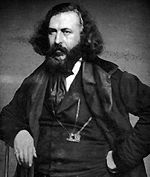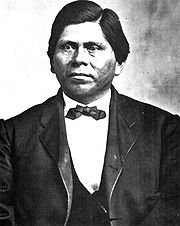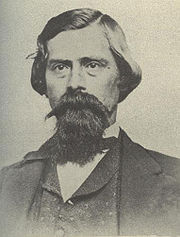
Treaty with Choctaws and Chickasaws
Encyclopedia

Treaty
A treaty is an express agreement under international law entered into by actors in international law, namely sovereign states and international organizations. A treaty may also be known as an agreement, protocol, covenant, convention or exchange of letters, among other terms...
signed on July 12, 1861 between the Choctaw
Choctaw
The Choctaw are a Native American people originally from the Southeastern United States...
and Chickasaw
Chickasaw
The Chickasaw are Native American people originally from the region that would become the Southeastern United States...
(American Indian Nations in Oklahoma) and the Confederate States of America
Confederate States of America
The Confederate States of America was a government set up from 1861 to 1865 by 11 Southern slave states of the United States of America that had declared their secession from the U.S...
. At the beginning of the American Civil War
American Civil War
The American Civil War was a civil war fought in the United States of America. In response to the election of Abraham Lincoln as President of the United States, 11 southern slave states declared their secession from the United States and formed the Confederate States of America ; the other 25...
, Albert Pike
Albert Pike
Albert Pike was an attorney, Confederate officer, writer, and Freemason. Pike is the only Confederate military officer or figure to be honored with an outdoor statue in Washington, D.C...
was appointed as Confederate envoy to Native Americans. In this capacity he negotiated several treaties, one of the most important being with Cherokee
Cherokee
The Cherokee are a Native American people historically settled in the Southeastern United States . Linguistically, they are part of the Iroquoian language family...
chief John Ross
John Ross (Cherokee chief)
John Ross , also known as Guwisguwi , was Principal Chief of the Cherokee Native American Nation from 1828–1866...
, which was concluded in 1861. The treaty was ratified and was proclaimed on December 20, 1861 by the Confederacy. The Choctaw and Chickasaw also duly ratified the treaty.
Some Choctaws identified with the Southern cause and a few owned slaves. In addition, they well remembered and resented the Indian removals from thirty years earlier and poor service they received from the federal government. The main reason the Choctaw Nation agreed to sign the treaty, however, was for protection from regional tribes.
Terms
The preamble begins with,

- Perpetual peace and friendship
- Protection provided by the Confederacy
- Confederacy will not abandon or desert them
- Boundaries defined
- Boundaries defined continued
- Safe passage for Choctaws through Chickasaw district
- Choctaw and Chickasaw nations to give full assent to the provisions of the act of the Confederacy
- Confederacy solemnly guarantees the lands held the by the Choctaws and Chickasaws forever
- Land never will be sold
- No state or territory laws of the Confederacy will be passed for the Choctaws and Chickasaws governments
- Confederacy renews leased area from the United States
- Indians in the leased area shall be subject to Confederacy laws until they are capable of self-government or subjected to Choctaw and Chickasaw laws.
- Confederacy waterways are free to Choctaw and Chickasaw nations.
- Choctaw and Chickasaw nations have unrestricted right of self-government
- Intruders in Choctaw or Chickasaw nations subjected to removal by the nations or the Confederacy
- Land tracts set aside for Confederacy agencies
- Confederacy forts in Choctaw and Chickasaw country
- Confederacy right of way for railroads, telegraph lines
- No Settlements or farms near forts, posts, or agencies
- Appointments for Confederacy agent and interpreter
- Protection from other domestric strife, white or Indian hostilities
- Legal assistance, intrusion prevention, and removal of dangerous or improper persons
- Property thief and recovery and payments for property not found
- Licensed traders approved by National Council and trading taxed
- United States laws removed that regulated Choctaw or Chickasaw selling
- Choctaws and Chickasaws can take, hold and pass, purchase or descent lands in any of the Confederate States
- Choctasw and Chickasaws are entitled to one representative in the House of Representatives of the Confederate States of America
- Choctaw and Chickasaw country may be admitted as a state when they elect to do so and become citizens in the Confederate States of America
- Land sales proceeds belong to members of the Choctaw and Chickasaw
- If Creek, Seminole, and Cherokee desire to become part of the Confederate States of America, then their countries maybe annexed to become part of the Choctaw and Chickasaw confederate state
- Choctaw and Chickasaw Nations may incorporate and determine who maybe citizens of their respective nation
- Confederate citizens trying to settle Choctaw and Chicaksaw Nations forfeits protection of the Confederate States and maybe uncruely punished by said nations
- Confederate citizens may not pasture stock on Choctaw or Chickasaw Nations. Confederate citizens may peaceable pass thru Choctaw or Chickasaw Nations, and the Choctaws and Chickasaws have the same privileges in the Confederate States.
Signatories
There were a total of 36 signatories.Commissioner of the Confederate States: Albert Pike
Commissioners of the Choctaw Nation: R.M. Jones, Sampson Folsom, Forbis Leflore, Geo. W. Harkins, jr., Allen Wright, Alfred Wade, Coleman Cole, James Riley, Rufus Folsom, William B. Pitchlynn, McKee King, William King, John P. Turnbull, William Bryant.
Commissioners of the Chickasaw Nation: Edmund Pickens, Holmes Colbert, James Gamble, Joel Kemp, William Kemp, Winchester Colbert, Henry C. Colbert, James McM. Lish, Martin W. Allen, John M. Johnson, Samuel Colbert, A. Alexander, Wilson Frazier, C. Columbus, Ashalatobbe, John E. Anderson.
Aftermath
From about 1865 to 1918, Mississippi Choctaws were largely ignored by governmental, health, and educational services and fell into obscurity. In the aftermath of the Civil War, their issues were pushed aside in the struggle between defeated Confederates, freedmen and Union sympathizers.The Confederacy’s loss was also the Choctaw Nation’s loss. The Choctaw Nation, in what will be Oklahoma, kept slavery until 1866. After the Civil War, they were required by treaty with the United States to free the slaves within their nation. Former slaves of the Choctaw Nation were called the Choctaw Freedmen
Choctaw Freedmen
The Choctaw freedmen were enslaved African Americans who became part of the Choctaw Nation with emancipation after the American Civil War, a requirement of the 1866 treaty the US made with the Choctaw. The Choctaw had sided with the Confederacy during the war....
. After considerable debate, Choctaw Freedmen were granted Choctaw Nation citizenship in 1885. In post-war treaties, the US government also acquired land in the western part of the territory and access rights for railroads to be built across Indian Territory.
But, [Colonel Emory], as soon as the Confederate troops had entered our country, at once abandoned us and the fort; ... By this act the United States abandoned the Choctaws and Chickasaws.
—Julius Folsom, September 5, 1891, letter to H. B. Cushman
Further reading
- Matthews, James M. The Statues at Large of the Provisional Government of the Confederate States of America, 1864; reprint, Buffalo: printed by William S. Hein & Company, 1988: 311-31.

